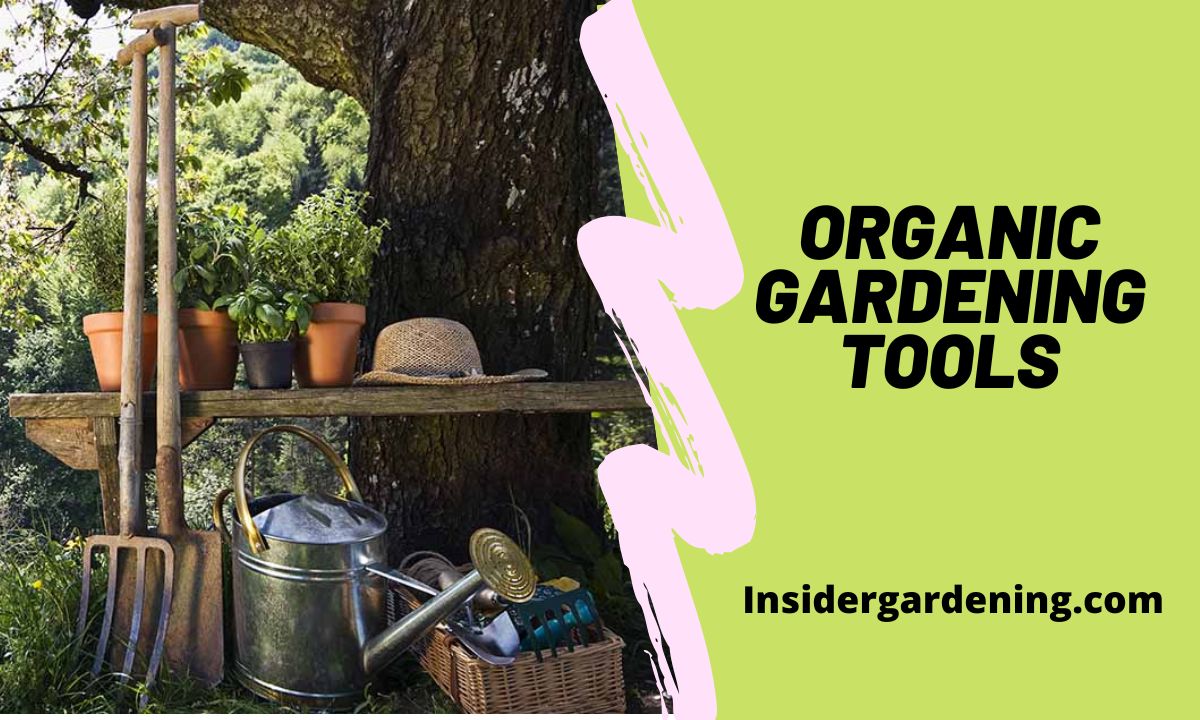Organic Gardening Tools: The Eco Way

Organic gardening is not only about growing plants without synthetic pesticides and fertilizers but also about adopting sustainable practices throughout the gardening process. To maintain an eco-friendly approach, it’s essential to use organic gardening tools that are designed with sustainability and environmental consciousness in mind.
In this article, we will explore a range of organic gardening tools that will help you cultivate a healthy and environmentally friendly garden.
Benefits of Organic Gardening Tools
Using organic gardening tools provides several benefits for both your garden and the environment. Here are a few advantages of incorporating organic gardening tools into your gardening routine:
- Chemical-Free Gardening: Organic gardening tools promote a chemical-free approach to gardening. They eliminate the use of synthetic pesticides, herbicides, and fertilizers that can harm beneficial insects, wildlife, and soil health.
- Reduced Environmental Impact: Organic gardening tools are often made from sustainable materials, such as bamboo or recycled plastic. They minimize the use of non-renewable resources and reduce environmental impact compared to tools made from non-recyclable or non-biodegradable materials.
- Healthier Soil and Plants: Organic gardening tools prioritize the health of the soil and plants. They allow for natural processes like nutrient cycling, soil microbial activity, and beneficial insect habitats, which contribute to the overall well-being of your garden.
- Eco-Friendly Waste Management: Many organic gardening tools are designed for reusability and longevity. They reduce waste by minimizing the need for disposable or single-use items. Additionally, organic gardening tools can often be recycled at the end of their life span.
Essential Organic Gardening Tools
Let’s explore a selection of essential organic gardening tools that align with sustainable practices:
1. Compost Bin or Tumbler
A compost bin or tumbler is an indispensable tool for organic gardeners. It allows you to recycle kitchen scraps, yard waste, and plant debris into nutrient-rich compost. Look for compost bins made from recycled materials and those with aeration features for efficient decomposition.
2. Hand Cultivator
A hand cultivator is a versatile tool for loosening soil, removing weeds, and aerating the root zone. Choose a hand cultivator with a handle made from sustainable materials and sharp tines that penetrate the soil easily. This tool helps minimize soil compaction and promotes healthy plant growth.
3. Organic Pest Control Methods
Rather than relying on chemical pesticides, organic gardening encourages the use of eco-friendly pest control methods. These include companion planting, beneficial insect attraction, physical barriers like netting or row covers, and handpicking pests. Embrace these methods as your primary line of defense against garden pests.
4. Rain Barrel or Watering System
Conserving water is crucial for sustainable gardening. Install a rain barrel to collect rainwater or invest in a drip irrigation system that delivers water directly to the root zone of your plants. These tools minimize water waste and promote efficient water use in the garden.
5. Organic Fertilizers and Soil Amendments
Opt for organic fertilizers and soil amendments to enrich your garden soil naturally. These include compost, well-rotted manure, bone meal, seaweed extract, and other organic options. Look for products that are certified organic and sustainably sourced.
6. Garden Tool Maintenance Kit
Maintaining your gardening tools is an important aspect of sustainability. A garden tool maintenance kit typically includes a wire brush, sharpening stone, and plant-based lubricant. Regular maintenance ensures that your tools remain functional, prolongs their lifespan, and reduces the need for replacements.
FAQs about Organic Gardening Tools
Can I make my own organic gardening tools?
Absolutely! DIY organic gardening tools can be made from repurposed materials or sustainably sourced resources. For example, you can create garden labels from recycled materials or use bamboo stakes as plant supports.
Are organic gardening tools more expensive than conventional tools?
The cost of organic gardening tools may vary, but they are often comparable to or slightly more expensive than conventional tools. However, the long-term benefits to your garden’s health and the environment outweigh any initial cost difference.
Can I use organic gardening tools for non-organic gardening?
Yes, organic gardening tools can be used for non-organic gardening practices as well. The use of eco-friendly tools promotes sustainable practices and reduces the environmental impact of gardening.
Where can I purchase organic gardening tools?
Organic gardening tools can be found at local garden centers, online gardening stores, or specialty eco-friendly retailers. Look for products that are labeled as organic or made from sustainable materials.
Are there any organic alternatives to synthetic gardening tools?
Yes, there are organic alternatives to synthetic gardening tools. For example, instead of synthetic mulch, you can use organic materials like straw or wood chips. Research eco-friendly options and choose tools that align with your organic gardening principles.
Can I reuse non-organic gardening tools in an organic garden?
If you have non-organic gardening tools, you can still reuse them in your organic garden. However, make sure to clean them thoroughly and avoid using any chemical residues that may be harmful to your organic practices.
Conclusion
Embracing organic gardening tools is an essential step toward creating a sustainable and eco-friendly garden. By utilizing tools made from renewable and recycled materials, practicing chemical-free pest control methods, and incorporating organic fertilizers and amendments, you can cultivate a thriving garden while minimizing your impact on the environment. Explore the wide range of organic gardening tools available and enjoy the rewards of an organic garden that harmonizes with nature.